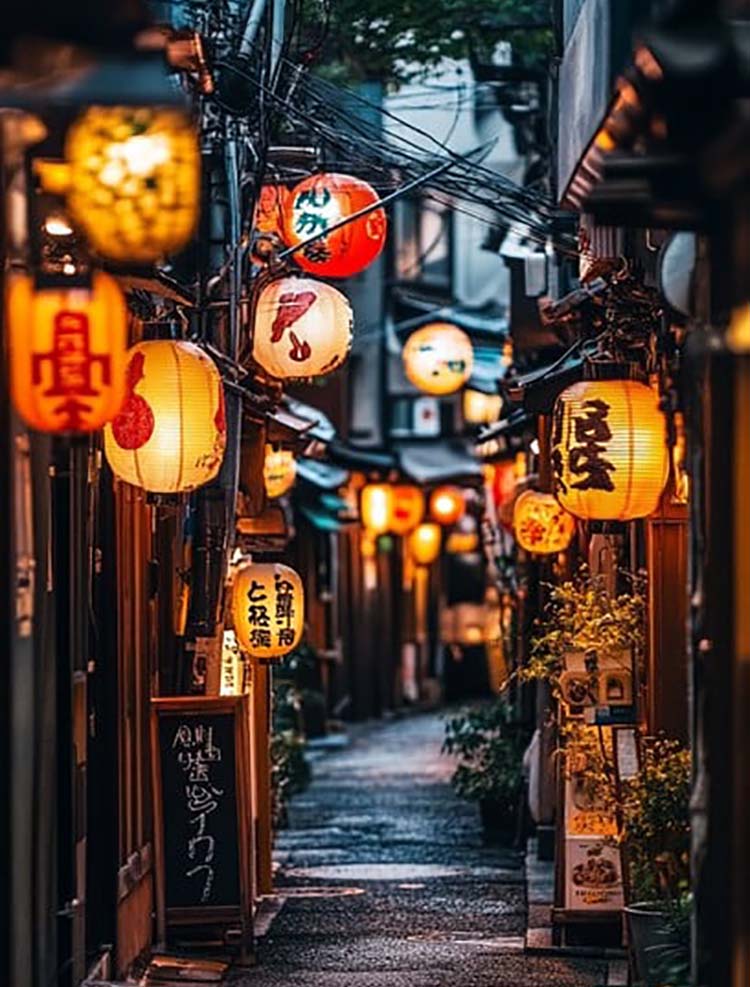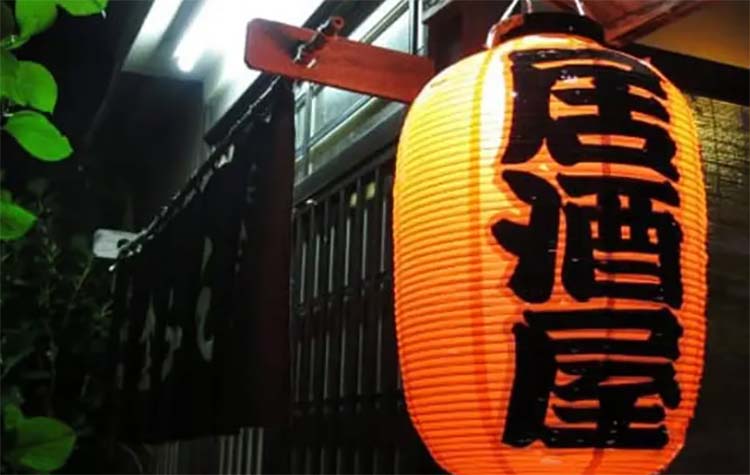Paper lanterns hanging outside restaurants are a common sight on Japanese streets. Many international visitors often assume they have religious or cultural meaning.
"The lanterns are simply menus," says Andy Marsden, a Japanese-Australian food tour guide and founder of Osaka Food Tours.
According to Marsden, information about the food and drinks served is printed directly on the lanterns, making it easy for passersby to see from afar, even in crowds or from across the street. Some restaurants also display their names on the lanterns for brand recognition.
 |
A small street with hanging lanterns in Japan. Photo: Stock Cake |
A small street with hanging lanterns in Japan. Photo: Stock Cake
Another way restaurants advertise their food is by displaying realistic food replicas in their windows. Unlike in many other countries where advertising tends to exaggerate, the size of the replica in Japan accurately represents the portion customers will receive.
Marsden has lived in Japan for 14 years, starting his career by taking friends out to eat and later establishing his tour company. He now manages nearly 30 food tour guides.
Marsden also notes an unwritten rule in Japan that many international visitors unknowingly break: being late. For Japanese people, punctuality is not just a habit but a sign of respect. Arriving even a few minutes late can be considered rude, even when meeting friends. The same applies to restaurant reservations.
"When you make a reservation, it's a promise. So even a few minutes' delay will prompt a call from the restaurant," Marsden says.
Punctuality is deeply ingrained in Japanese culture. Marsden often runs to appointments instead of walking to avoid keeping anyone waiting. Eating out is a common practice in Japan, with most families dining out at least twice a week.
 |
In addition to shops, Japanese people also hang lanterns in front of their homes and temples during festivals. Photo: Matcha |
In addition to shops, Japanese people also hang lanterns in front of their homes and temples during festivals. Photo: Matcha
Another cultural insight Marsden reveals is the Japanese tendency to rarely invite friends home. "It may be hard to believe, but friends almost never invite each other over, not even for a quick visit," he says. The reason is the Japanese value tidiness and privacy. They prefer not to reveal their personal lives. Moreover, making noise and disturbing neighbors is also seen as impolite.
"The positive side is that they meet at restaurants and bars, which boosts the economy," Marsden says.
Anh Minh (News)












